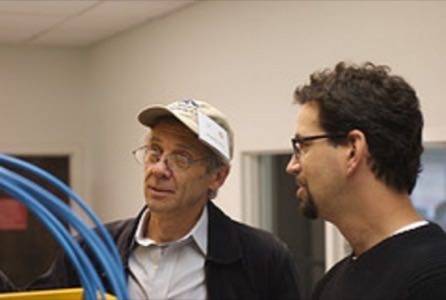This is the first in an occasional series on people who have passed away, folks who have contributed in some way to the development of, or the way we look at, the Internet and Web.

Ivy Bean, World’s Oldest Twitter User
One of the benefits of working in the Web is the fun factor. If you design rockets, your work at least is probably pretty intense. If you work on the Web, you can help people stay alive, or you can have fun. One of the folks who represented some of that fun, a 104 year-old English lady named Ivy Bean, died on July 28 in Bradford, England.
Her claim to fame was her status as the oldest Twitter user. But that’s just to us. To her friends and family, no doubt so much more. But the idea that this little thing we do can be done by someone our great-grandmother’s age, was nice. I imagine wherever she is now, she’s probably had enough of it already. Probably playing Farmville with real cows.
Don Backer, Astrophysicist and Director of the Allen Telescope Array
Prof. Backer was a pioneer in the area of radio astronomy, using radio telescopes to observe the universe. In fact, his most astonishing discovery was probably that of pulsars, stars that rotate at such a speed they appear to pulse. Backer worked at UC Berkeley for 35 years, a maker of instruments as much as a professor of their products.
One of the first crowd-sourcing experiments I ever heard of was one that brought laypersons into the process by using their computer downtime to process the huge amounts of information recorded by astronomers. That process would not have been possible without the Web. And it goes on. The SETI project, using radio telescopes to search for possible life outside our planet. just launched the newest crowd-sourcing project I’ve come across, setiquest.org.

The effects we have on each other are sometimes like music. Without men like Backer, who pointed in a host of possible directions, who found new types of stars using a device that bore some resemblance to the little electronic box they listened to in their cars, would certain Web innovators, less inspired, have been slower on the draw? And will those subsequently captivated by the Web, with its connections and collaborations, enable the work of backer’s successors? I certainly like to think so.
Photo of Don Backer by Colby Gutierrez-Kraybill

















